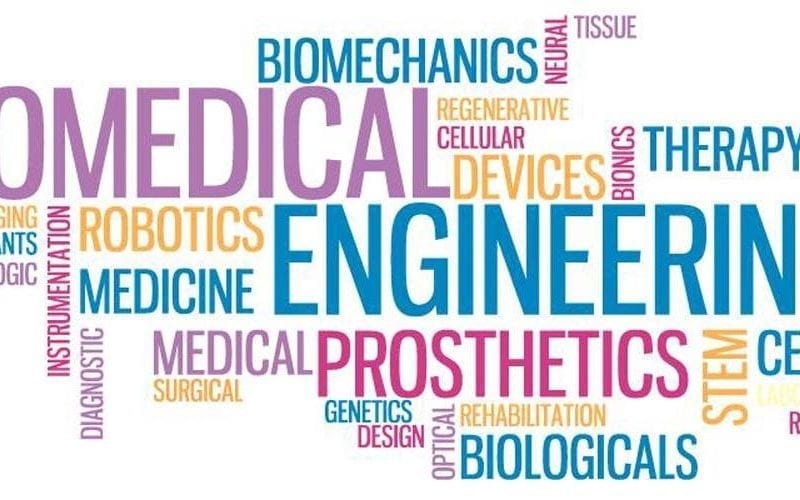What Is Biomedical Engineering?
Biomedical engineering is the application of the principles and the problem-solving techniques of engineering to medical science. This is evident throughout the field of healthcare, from diagnosis and analysis to the treatment and recovery. Biomedical Engineering has entered the public conscience due to the tremendous increase of implantable medical devices, such as pacemakers, to the upcoming technologies such as stem cell engineering as well as the 3-D printing of the biological organs.
Engineering is an innovative field which is the origin of ideas from automobiles to aerospace and even skyscrapers to sonar. Biomedical engineering primarily focuses on the concepts which improve human health and overall health care at all levels.
Biomedical engineering differs from several other engineering disciplines that have an influence on human health. For that, biomedical engineers apply an intimate knowledge of modern biological principles in their engineering design procedure. Aspects of mechanical engineering, electrical engineering, chemical engineering, materials science, chemistry, and math & computer science are all integrated with human biology in biomedical engineering to improve human health
There are various sub-disciplines within biomedical engineering as well, including the design/layout and development of all medical devices, orthopedic implants, medical imaging, signal processing, tissue/stem cell and clinical engineering.
What do Biomedical Engineers do?
Biomedical engineers work in a wide variety of settings and disciplines. There are opportunities in industry for innovation, designing & development of new diagnostic tools and pushing the frontiers of what is medically possible; and in government for establishing the safety standards for medical devices. Many biomedical engineers start up some cutting-edge companies or start as entrepreneurs themselves.
Tissue and stem cell engineers are working towards the artificial recreation of human organs, aiding in transplants and helping millions of people around the world live better lives. Experts in medical devices tend to develop many new external devices such as pacemakers, coronary stents, orthopedic implants, prosthetics, dental products, and ambulatory devices. Clinical engineers work to make sure that medical equipment is safe and reliable for use in clinical settings. Biomedical engineering is an extremely broad field with many opportunities for specialization.
What Careers are there in Biomedical Engineering?
In the last few years, both Forbes and CNN Money biomedical engineering were termed as the best health care career out there. And the possibilities within biomedical engineering are nearly endless. New innovations in technology, materials, and knowledge mean that the future breakthroughs can barely be conceived of today. After all, biomedical engineering did not even exist as a field some time ago.
Career paths in biomedical engineering tend to be driven by the interests of the individual: the huge breadth of the field allows biomedical engineers to develop the specifications in an area which they find interesting, be it biomaterials, neuromodulation devices, orthopedic repair or stem cell engineering. Biomedical engineers often combine an aptitude for problem-solving and technical know-how with focused research in medicine, healthcare, and helping others. It is this hybridization that has led to so much innovation—and so much opportunity—in biomedical engineering.
How Much do Biomedical Engineers Earn?
Like careers in many other engineering fields, biomedical engineers are well paid. Compared to other fields, one can earn above average throughout each stage of their careers. Generally, the first job as a biomedical engineer has a salary in excess of $61,000, with many earning significantly more. More advanced careers are comfortably in six figures.
According to the statistics, the mean salary for a biomedical engineer is $91,230 with the top ten percent of biomedical engineers earning $139,520.
The Future of Biomedical Engineering
Economically speaking, medical diagnostics has an annual growth up to three times. Revolutionary advances in medical imaging and medical diagnostics are changing the way medicine is practiced. New medical devices from the research laboratories of biomedical engineers around the world have completely altered the manner by which disease and trauma are dealt with by physicians, extending the quality and length of human life.
Ultimately, the future of biomedical engineering is related both to the issues and obstacles we discover and advances and achievements in fields like chemistry, materials science, and biology. Just as in most other fields, interdisciplinarily means that innovation originates from many directions at the same time.
To know more about Top Colleges for Biomedical Engineering read our previous blog:
http://blog.leverageedu.com/2017/09/22/biomedical-engineering-top-10-undergraduate-programs/
Bidyut Dutta,
Senior Vice President | Leverage Edu
[email protected] | www.leverageedu.com
Making Higher Education Intelligent & Awesome!

 One app for all your study abroad needs
One app for all your study abroad needs






















 45,000+ students realised their study abroad dream with us. Take the first step today.
45,000+ students realised their study abroad dream with us. Take the first step today.

